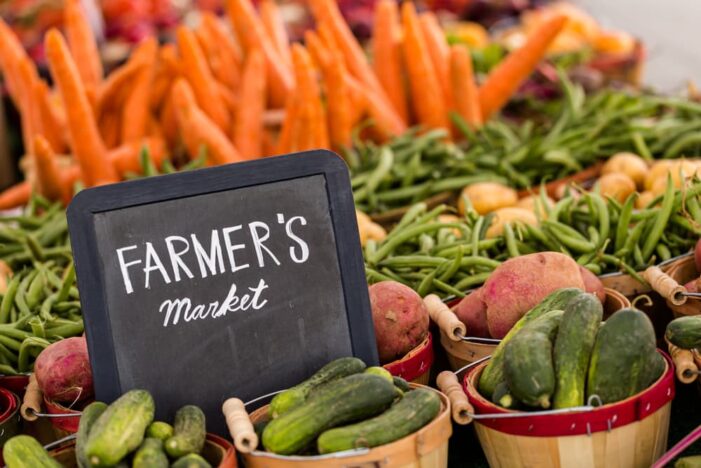By WiredJA News Team | January 25, 2024
GEORGETOWN, Guyana, January 25, 2025 – In a landmark move to bolster agricultural productivity and food security in the Caribbean, the USAID’s Caribbean Agricultural Productivity Improvement Activity (CAPA) program was inaugurated at the University of Guyana, Turkeyen Campus.
The initiative, a part of the broader CARICOM policy, aims to achieve a 25% reduction in imported agricultural produce by 2025, addressing the urgent need for regional self-sufficiency in food production.
The CAPA programme, with a budget of $5.3 million over three years, will operate across Guyana, Suriname, St Vincent and the Grenadines, Dominica, Barbados, Grenada, St Lucia, and Trinidad and Tobago. It focuses on enhancing fruit and vegetable production, improving supply chain connections, and integrating value-added services and storage solutions. Emphasizing climate-smart agricultural practices, the programme is poised to transform the agricultural landscape of the region.
Guyana’s Minister of Agriculture, Zulfikar Mustapha, underscored the critical timing of CAPA’s implementation, given the global food security challenges stemming from the Russian-Ukraine conflict. He highlighted the alignment of CAPA with the region’s broader goals, particularly the ’25 by 2025′ initiative, noting that the targeted commodities are key to achieving this ambitious objective.
The U.S. Ambassador to Guyana, Nicole Theriot, emphasized CAPA’s significance in strengthening U.S.-Caribbean relations. She pointed out that CAPA, emerging from the Ninth Summit of the Americas, is a direct response from the U.S. Government to the compounded challenges of the Russia-Ukraine war, climate crisis, rising food prices, and supply chain disruptions. Theriot affirmed the U.S. Government’s support in tackling the unique challenges of climate, energy, food security, and capacity building in Caribbean nations.
Mervyn Farroe, USAID Eastern and Southern Caribbean Regional Representative, reiterated USAID’s commitment to unlocking the Caribbean’s agricultural potential. He highlighted CAPA as one of several USAID-supported initiatives, including the Farmer-to-Farmer program, aimed at enhancing smallholder market access and integrating agritech and climate-smart technologies.
The CAPA program, implemented by the International Executive Service Corps (IESC) and the Inter-American Institute for Cooperation on Agriculture (IICA), represents a significant stride towards regional agricultural self-reliance, poverty reduction, and food security enhancement in the Caribbean.
Launch of the $5.3 million regional program at the University of Guyanathe CAPA program’s significance was further emphasized by CARICOM Secretary General Dr. Carla Barnett. During the launch event, Dr. Barnett highlighted the project’s potential not only to enhance food security but also to stimulate wealth and economic growth across the region. She stressed the necessity for the project to effectively reach its intended beneficiaries, thereby maximizing its impact on the Caribbean’s agricultural sector and overall economic development.
Dr. Barnett elaborated on several pivotal initiatives led by CARICOM that complement the goals of the CAPA programme. These include the Caribbean Week of Agriculture, a flagship event showcasing the region’s agricultural prowess and innovation. She also pointed out the recent strides made in regional trade, citing the approval of various long-standing policies by the Council for Trade and Economic Development (COTED). These policies are instrumental in facilitating greater intra-regional trade, a critical component for the success of initiatives like CAPA.
Furthermore, Dr. Barnett mentioned the upcoming CARICOM Development Partners Meeting on Food Security, signaling the region’s proactive and collaborative approach towards addressing food security challenges. Such platforms not only facilitate dialogue but also foster partnerships essential for the successful implementation of projects like CAPA.
A notable aspect of the CAPA programme, as highlighted by Dr. Barnett, is its focus on improving the turmeric value chain in specific CARICOM countries including Guyana, Suriname, and St Vincent and the Grenadines. This initiative underscores the programme’s commitment to enhancing specific agricultural sectors with high growth potential, thereby contributing to the diversification and strengthening of the region’s agricultural landscape.
In conclusion, the Caribbean Agricultural Productivity Improvement Activity (CAPA), championed by USAID and closely aligned with CARICOM’s strategic goals, presents an opportunity for profound transformation in the Caribbean’s agricultural sector. By focusing on enhancing productivity, fostering regional trade, and integrating innovative agricultural practices, CAPA is set to play a pivotal role in realizing the vision of a self-sufficient, economically robust Caribbean region.





